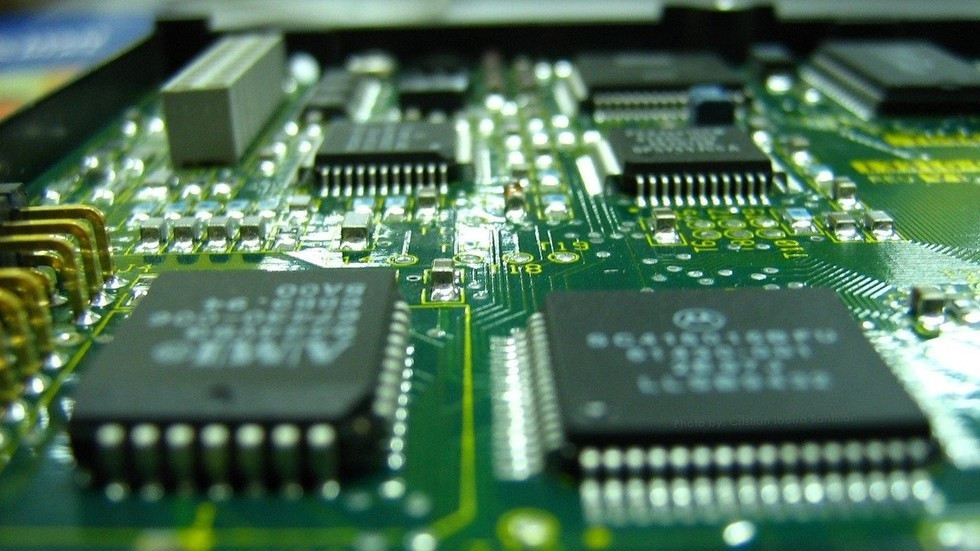
The stories related by Prof Dr Tran Xuan Hoai from the Vietnam Academy of Science and Technology at a seminar on semiconductor value chain and opportunities for Vietnam held some days ago surpeised many people.
Hoai said Vietnam began thinking of developing the semiconductor industry very early. In 1962, Prof Dam Trung Don from the Hanoi General University conducted research and gave lecture on semiconductors at his school and created Transistors.
In 1974, the Institute of Physics built a semiconductor lab, and in 1975-1976 created Silicon Transistors with Planar-Epitaxi technology. In 1976-1977, military forces used West European equipment and made Silicon Transistors. In 1979, Z181, the semiconductor manufacturing factory was established.
South Korea also began paying attention to developing semiconductor industry in 1970s. In 1973, Samsung created the first Silicon Transistors. The country’s semiconductor factory was established five years earlier than Vietnam’s Z181.
However, while South Korea, with Samsung being the pioneer, became a powerhouse in semiconductor industry in 1990s, and Vietnam then stopped the production at Z181 and factory’s workers, who were the ‘elite’ of Vietnam’s semiconductor technology, left for other jobs. Finally, Vietnam’s semiconductor industry returned.
Expressing his regret about the suspension of Z181, Hoai believes that Vietnam has many excellent experts in semiconductor and microchip.
“When I went to the US in 1984 and visited the workshop that manufactured the first CPU, I saw a lot of Vietnamese workers. Many 6502 chip designs were created by Vietnamese,” he said.
Prior to that, in 1982, a company founded and run by Vietnamese was set up in Silicon Valley. The company had a branch in HCM City and 100 percent of workers of the company were Vietnamese, from president to engineers.
“They were very famous for chip designing. But in 2018, the company sold its factory to another business in Silicon Valley at $250 million,” Hoai recalled.
In 2021, IBM announced a project on manufacturing 7nm chips containing about 2 billion transistors with the area of 600 mm2. The project was scheduled to be implemented within five years with the total investment capital of $300 million. Of this, the investment in workforce cost $150 million).
The project gathered 43 authors, including 30 doctorate holders, and 13 master’s degree holders in different fields, including electricity, electronics, computer science, physics, mathematics, materials science, chemistry and mechanical engineering. One of them was a Vietnamese author.
Recently, Vietnam’s Viettel announced the successful manufacturing of 5G chips, while FPT Semiconductor announced success in manufacturing microchips. Hoai said he knows some small businesses with just 4-5 workers have begun making chips.
Meanwhile, startups have been established. Most of the staff are young people returning to the homeland after finishing study overseas.
Nguyen Duc Minh, PhD, Dean of Electronics Faculty, School of Electrical and Electronics Engineering under the Hanoi University of Science and Technology (HUST), affirmed that Vietnamese engineers are talented.
“Some chips have been designed by HUST engineers, though they are still not the highest technological nodes, the chips are really competitive and they have industrial patents,” Minh said.
Minh said that he is personally impressed by two startups that make chips in Vietnam. The startups choose to develop niche markets. Though designing and making chips remains difficult in Vietnam because of the lack of policies on tax incentives, support of workforce, many small and medium enterprises still have decided to ‘throw themselves’ into the challenging field.
High ranking officials of the government many times affirmed that the government has committed to support the national semiconductor industry.
Meanwhile, Vietnamese technology firms have enthusiasm and are confident about their abilities to design and manufacture microchips.
Nguyen Cuong Hoang, deputy CEO of Viettel High Tech, said Viettel has approved a budget of VND500 billion for the development of Microcell 5G and is building a 5G Lab worth VND200 billion. Viettel is cooperating with partners from the US, South Korea, India on chipsets, hardware and software for 5G.
“When we said we manufacture chipsets, many people were surprised. But just three years later, Viettel could make chips,” he said.
Trong Dat